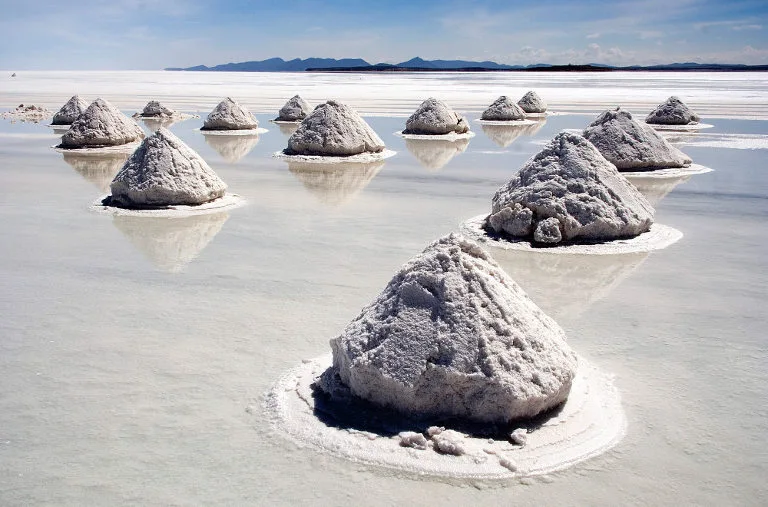No. They’re a step.
They solve the wrong problem - we need fewer cars, not electric cars.
Yeah, but we’re shit at doing that so how about we do the “easy” part of getting less CO2 and local pollution by shifting everything Electric right now and push for better overall. This is a case for doing something in the right direction, not waiting for the perfect solution.
Unless you have a time machine and we go back to the 80s and start the conversion then like we should have.
Came here to say this. Many changes need to be made, and some will be more effective than others, but we can’t afford to do nothing.
Electric cars are a solution to save the auto industry, not the planet
Electrification will happen somehow, electric cars will be part of that. But especially places like the us need to also become less dependent on cars
tl;dr ☝️
Electric cars + carsharing. The notion that we can completely dismantle or replace car-centric infrastructure in the timescales necessary to address climate change is wishful thinking, but of course so is the idea that we can just electrify everything we currently do and it’ll all work out. Some of the pushback to EV production has merit and we simply cannot replace every ICE car on the road in the US with an EV. We need fewer cars and we need them to be used more effectively and sensibly. I love off roading, I totally understand wanting to be able to drive a lifted 4x4 when it’s appropriate. The trick is not having to drive a 20mpg vehicle on your commute everyday, or to the grocery store. Living car-less in the US needs to become more practical and that means we need to serve all of a persons needs. Public transit, bikes, and walking can serve us well enough in our daily lives. But leisure, hobbies, and other edge cases also need to be supported through things like affordable carsharing services or rentals. If someone needs to own a car to occasionally go hiking in the mountains then that car needs to be built, maintained, and will likely be a convenience crutch as opposed to if there were a viable low cost (and preferably electrified) rental for destinations that transit and other methods cannot reach.
deleted by creator
Have we ever thought they were a solution and not just a stopgap?
Until proper alternatives are fully operational, EVs are not the worst thing.
You’re undercutting your own argument here.
EVs make sense in rural contexts, but that is and will always be a niche application. We can’t afford to ignore the bigger picture - most people live in cities. There are more efficient and better options to decarbonize cities than electric cars.
As the other commenter pointed out, electric cars are a step. A lot of people living in cities are ready to go farther now though. Let’s not ignore them or get in their way.
About 56% of the world lives in urban settings. I wouldn’t call 45% of the population a niche market, however I would say that even a significant portion of the rural population could be better served with non-car transportation options. Removing fossil fuels as much as possible from our energy use will still be vital to averting a major crisis, and alternatives will need to be found for those 45%, too, especially since they will use proportionally more transportation energy than their urban counterparts.
deleted by creator
No. If you think they are, then please look up how much of the plastic in the oceans and nature in general is from car tires. Also an electric car does nothing if the electricity is produced from fossil fuels,
Incorrect, evs are still better than petrol, even under coal power, so it does do something. Also the grid will continue to get greener as coal shuts down and EVs will get greener too.
Peer reviewed source:
https://www.mdpi.com/2071-1050/12/3/1241
Also there are plenty of additional studies showing this too.
Actually, because of just how inefficient small scale combustion is and how much fuel goes into getting that gas to the car in the first place, even if you run an EV directly off the most polluting coal plant in the North America it’s still significantly better for the environment. Admittedly if you use a more average energy mixture, the benefit is far larger, but there is still a benefit.
Make them float with anti gravity instead of giving them tires? By the stars, the apes of this star system have so many skill issue problems…
One thing that the article didn’t touch on, since it was focused on input costs, is the extra pollution from using EVs.
EVs are substantially heavier than ICEs of the same class, due to the battery. This leads to extra wear on the tires, break pads, and road surface -> even more micro plastics and particulate air pollution.
We need to reduce our ecological footprint, not merely change it from oil to reactive metals.
Brake pads tend to last longer due to regenerative braking. The rest of your point stands.
I never changed my pads in 65k miles so that’s not true sorry.
They are on average slightly heavier but we’re talking 100-200kg. That’s nothing, 10-15%, definitely not “substantially”. Less if you add fuel to the ICE.
There’s not any extra pollution. There’s an investment cost and then tyre wear. Which you get from an ICE. Along with, you know, all the pollution from the combustion engine. Which is at most 24% efficient (more likely middle teens) and only continues to pollute rather than electric vehicles which don’t.
Electric cars may not be the ultimate solution but they’re a damn sight better than the status quo so let’s stop this kind on hysterical posting eh?
The ‘substantially heavier’ is doing a lot of work there, given the change is only about 5 to 10% on average and typically EV’s are still not the heaviest vehicles in their same class. Compared to the car obesity epidemic in North America, the drivetrain is irrelevant. A European EV for instance is nearly always going to far, far lighter than a modern US gas car.
Also, becuse if the road degradation is exponentially tied to tire wheight it is almost always a function of trucks, busses, and freeze thaw cycles, cars tend to be to light to cause significant share of the damage.
Break dust is an odd thing to bring up, seeing as one of the other common gripes with EVs is that they use their breaks so extremely rarely that they corrode and might be ineffective in an emergency.
Tire dust is an factor, but again one that’s more impacted by the increase in North America’s car size than drivetrain and which is reduced by getting cars back to sane sizes and out of dense areas like cities, not pretending that a 80 to 90% reduction in one of the largest causes of climate change is somehow the same.
No.







